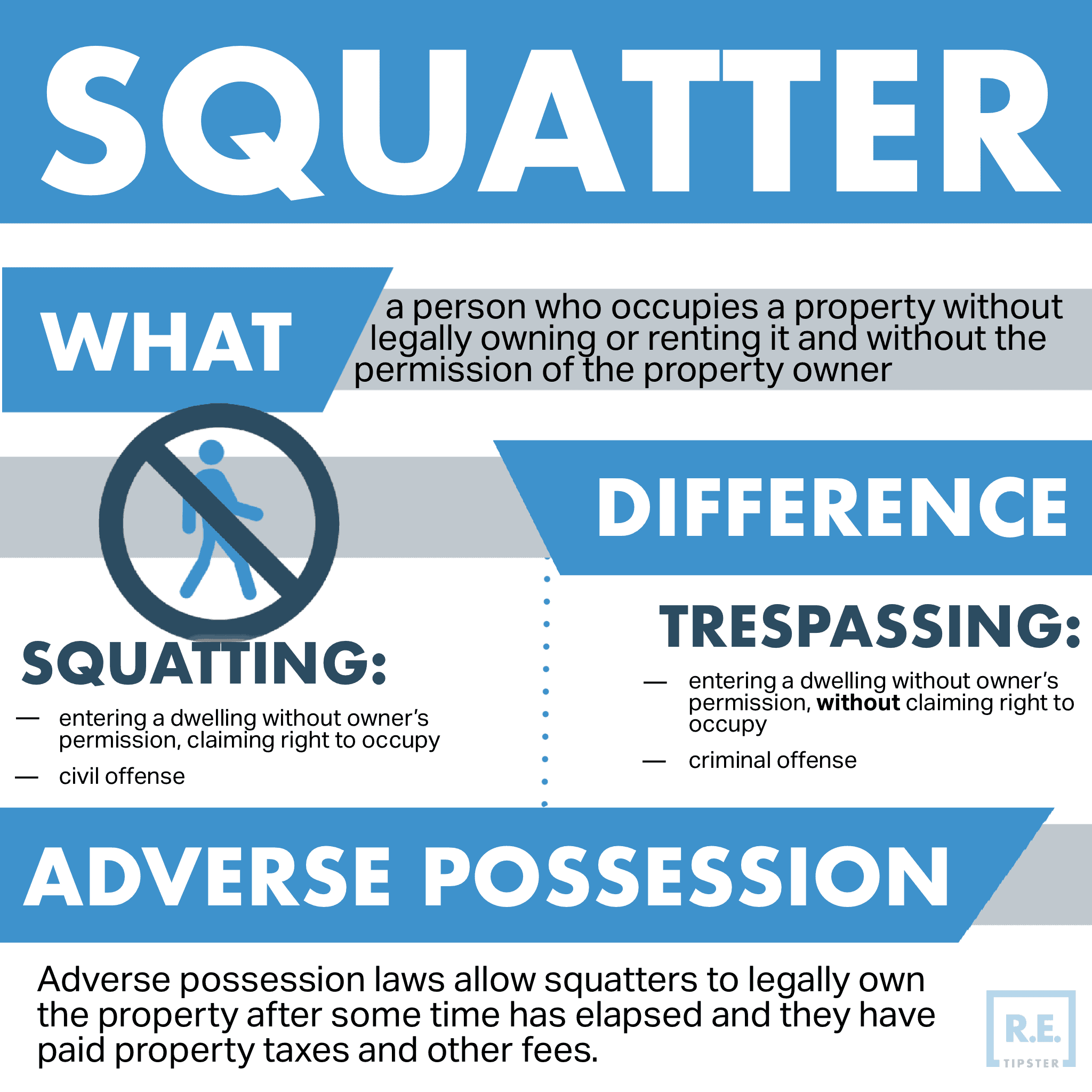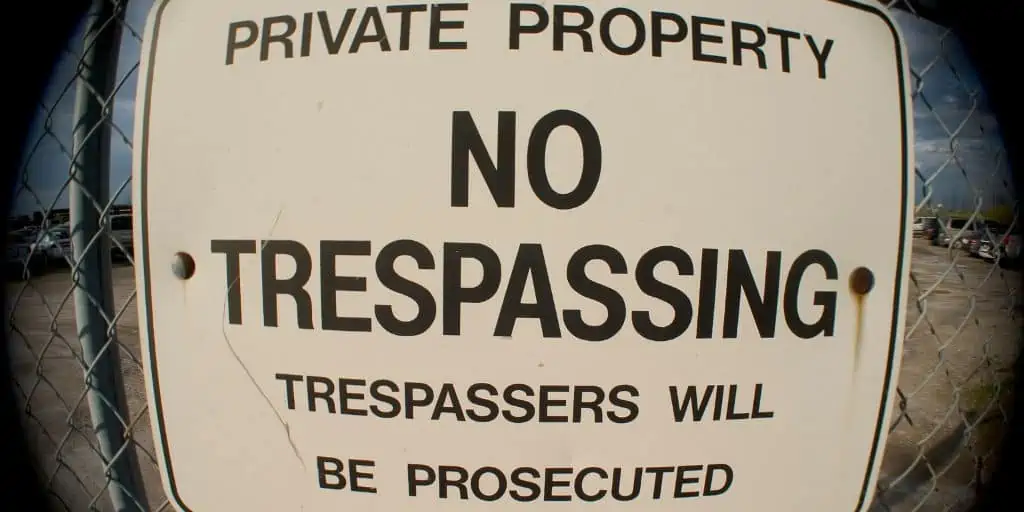What Is Adverse Possession?
How Does Adverse Possession Work?
Adverse possession is a principle where one can claim ownership of real property, even against its original owner, by satisfying certain conditions. One such condition is the non-intervention of the property’s owner against the one who claims to own the property for a certain duration. In legal terms, this duration is known as the statutory period.
Adverse possession occurs either accidentally or deliberately. Suppose Person A puts a fence around their plot of land to distinguish it from Person B’s. However, Person A miscalculates, accidentally placing a fence three feet into Person B’s property, who is unaware of the miscalculation.
After the statutory period has elapsed, Person A will have unintentionally claimed ownership of the extra three feet of Person B’s property due to adverse possession. Even though Person B soon realizes their mistake, it proves too late in this case[1].
Meanwhile, intentional adverse possession happens when there is a willful, premeditated act to occupy property otherwise owned by another person or entity. Intentional adverse possession usually occurs when a trespasser squats on land or in a building without the owner’s permission or knowledge. After the squatter waits out the state’s statutory period and satisfies its requirements, they may claim property ownership via adverse possession.
How Long Is the Statutory Period?
Adverse possession rules vary by state, including the length of the statutory period. The length ranges from five to twenty years[2].
In addition, some states may require the trespasser to pay taxes or own a deed to the property to qualify. This provision makes it easier for accidental adverse possession cases or situations where one may have inherited a home without a formal deed. It is entirely possible to pay property taxes for abandoned properties[3].
Meanwhile, one can ultimately claim ownership by settling for a quiet title action[4]. Note that these are prerequisites to counting the statutory period in some states (Nevada, for example), so one can only begin counting their tenure after filling these requirements.
Prescriptive Easement vs. Adverse Possession
Like adverse possession, prescriptive easements also allow someone else rights to another’s property (or a portion of it). A prescriptive easement is a type of easement that is considered open and notorious and is usually adverse to the owner.
The difference between them lies in that prescriptive easements do not award ownership of the affected part of the property. In addition, a prescriptive easement is not exclusive to one party[5].
Elements of Adverse Possession
Each state prescribes different rules concerning adverse possession, especially in the context of trespassing and squatting. In particular, squatters who aim to claim ownership via adverse possession should satisfy all these conditions:
Hostile
The trespasser’s presence in the property must be hostile, which means they do not have permission from the owner to occupy the space. If the owner had offered any form of approval to the trespasser (no matter how long ago, even before the statutory period began), then the latter can no longer claim adverse possession. Likewise, the same applies if a neighbor gives an individual permission to use part of their property.
Note that some courts may be wary of familial claims of adverse possession. For example, building a shed in their mother’s backyard might be difficult to prove it was without consent[6].
Actual
Physical occupation is necessary to prove a claim of adverse possession. For instance, if a trespasser does not actually live on the property or visit it regularly enough (by the court’s standards), they cannot claim ownership. Similarly, if the trespasser does not have access to the property or its facilities, they cannot prove actual ownership.
Open and Notorious
A trespasser must openly use the property; even neighbors can see them using the land as if it were theirs. On that note, their usage must be open and not a secret affair.
Exclusive
Trespassers must have exclusive access to the property to claim adverse possession. That means that the head of a trespassing family may take possession of the property, but a group of strangers cannot.
By the same token, someone who lives with the property owner cannot claim adverse possession. This limitation applies to co-ownership disputes[7] or tenants who refuse to move out, both of which will need to reference different areas of the law to resolve.
Continuous
Continuous possession means the trespasser must have stayed in the property or claimed ownership of it over a minimum period (sometimes the entire length of the statutory period, depending on some jurisdictions). This length of stay must be uninterrupted.
For example, if the trespasser has left the property for a few months without reaching the minimum duration, the tenure accumulated to that point will be void. However, if they were to stay at the same property for a sufficient length of time, depending on state laws, it is possible to move out for a while without losing this built-up tenure.
In some cases, seasonal use of a particular facility may also satisfy this condition if it matches how the true owner uses the same. For example, if one uses another’s pool every spring and summer but ignores it in the winter, the court may still vote in favor of adverse possession.
How Can Property Owners Defend Against Adverse Possession?
Once a trespasser claims adverse possession of an individual’s property, the only thing the latter can do is consult a lawyer. However, there is a high chance for the owner to lose the case even then. Therefore, the best way to prevent adverse possession is to take preemptive action[8].
Check-In on Property
It is easy to mistake vacant, unimproved land as unoccupied, so an owner should make extra effort to make the property appear inhabited and/or owned. Updating locks, erecting fences, and posting “no trespassing” signs can help, but the owner should also drop by their property from time to time and maintain them to keep an appearance of human activity.
If managing a portfolio of properties, an owner should make it a point to check in on each one from time to time. While regular upkeep may be costly, so does losing a property due to negligence.
Owners should also give special care to some types of land, like pastures or farmland. It is possible that others may have their livestock graze on another’s farmland or plant crops in it, which may result in major possession disputes later on.
Ensure Deeds Are Accurate
Often, boundary misunderstandings can result in adverse possession. Property owners should therefore double-check if their deeds are precise and accurate as far as property lines are concerned.
Evict Trespassers Immediately
Indulging squatting will only grow in favor of the squatters, so it is in the owner’s best interest to evict them as soon as possible. If the owner is not particularly bothered by the trespassers, it is best to make a formal agreement—recorded in writing—which waives the trespasser’s rights for adverse possession.
Takeaways
- Adverse possession allows trespassers to take ownership of a property upon meeting specific criteria, such as occupying owned land or property for a sufficient period of time.
- This length of time, called the statutory period, varies from state to state; some may take as little as five years while others take twenty.
- Real property owners may not always be able to reclaim their property once it has been awarded to the adverse possessor.
Sources
- Kimmons, J. (2019). Squatters Rights and Adverse Possession. The Balance. Retrieved from https://www.thebalancesmb.com/squatters-rights-and-adverse-possession-2866655
- Doskow, E. (n.d.). State-by-State Rules on Adverse Possession. Nolo. Retrieved from https://www.nolo.com/legal-encyclopedia/state-state-rules-adverse-possession.html
- Brumer, L. (2020). Can Someone Take Your Property By Paying the Taxes? Millionacres. Retrieved from https://www.millionacres.com/taxes/can-someone-take-your-property-paying-taxes/
- Eberlin, E. (2019). Using a Quiet Title Action to Establish True Ownership. The Balance. Retrieved from https://www.thebalancesmb.com/using-quiet-action-to-establish-true-ownership-4160987
- Dehan, A. (2021.) Prescriptive Easements: What Are They? Rocket Mortgage. Retrieved from https://www.rocketmortgage.com/learn/prescriptive-easement
- Farkas, B. (n.d.). How “Hostile” the Use of Property Must Be for Adverse Possession Claim. Nolo. Retrieved from https://www.nolo.com/legal-encyclopedia/how-hostile-the-use-property-must-be-adverse-possession-claim.html
- House of Law & Order. (2019). Co-Owning Property with Family or Friends: 11 Pitfalls and How to Avoid Them. Retrieved from https://houseoflawandorder.com/co-owning-property-with-family-or-friends-11-pitfalls-and-how-to-avoid-them/
- Mohler, B., Raz, I., Sherman, E. (2018). Don’t Get Possessed! Protection Against Adverse Possession. GlobeSt. Retrieved from https://www.globest.com/2018/08/29/dont-get-possessed-protection-against-adverse-possession/?slreturn=20210931111450












